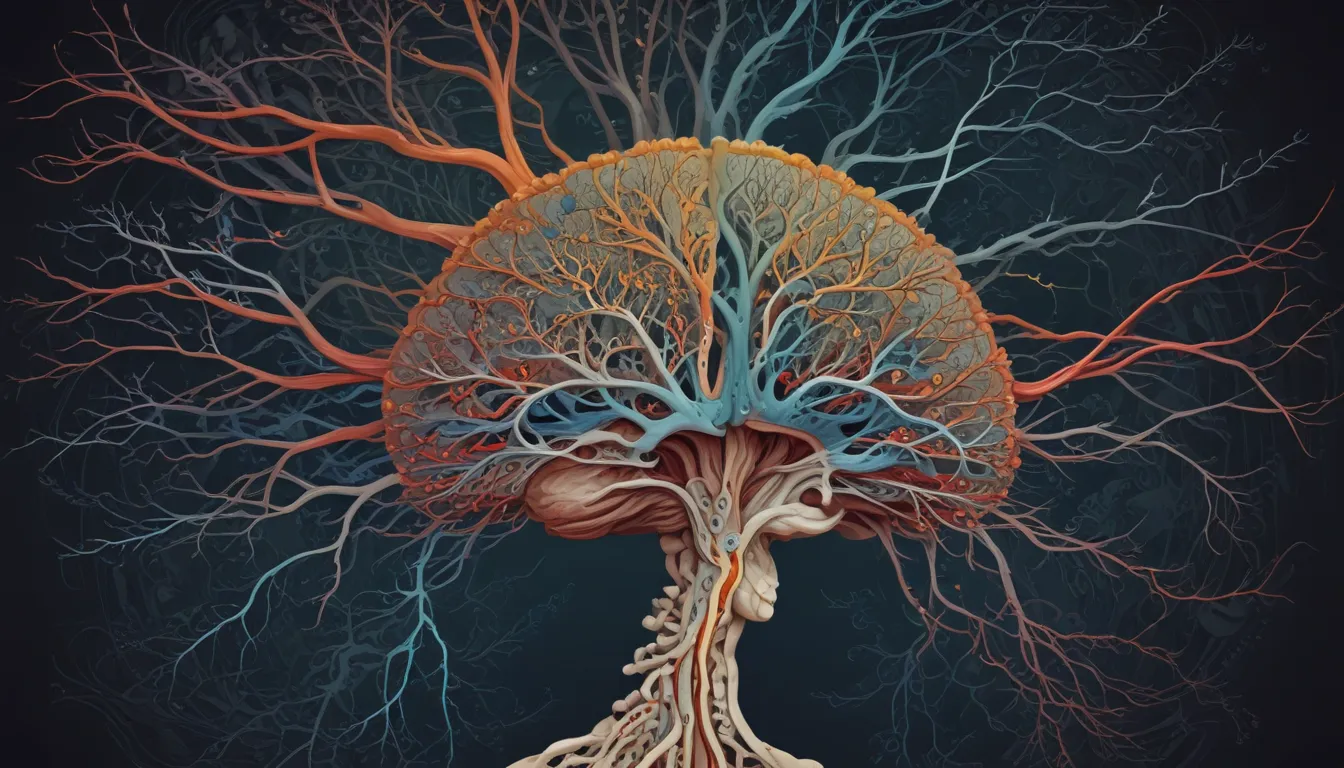A Note About Images: The images used in our articles are for illustration purposes only and may not exactly match the content. They are meant to engage readers, but the text should be relied upon for accurate information.
The human nervous system is an extraordinary marvel of biological engineering, orchestrating everything from simple reflexes to complex thoughts and emotions. Comprising the central nervous system (CNS) and the peripheral nervous system (PNS), it serves as a network of specialized cells that transmit signals between different parts of the body. Understanding the intricacies of the nervous system is crucial for appreciating its role in maintaining bodily functions and responding to external stimuli.
In this article, we will delve into 20 fascinating facts about the nerve system, shedding light on its structure, functions, and remarkable capabilities. From the speed of nerve impulses to the role of neurotransmitters, these facts will unravel the mysteries of the nervous system and showcase its significance in shaping human experience and behavior. So, let’s embark on a journey through the neural pathways and unravel the wonders of the nerve system.
The Nervous System: A Body’s Communication Network
The nervous system is a complex network of nerves and cells that carry messages to and from the brain and spinal cord to various parts of the body. It is divided into two main parts: the central nervous system (CNS), which includes the brain and spinal cord, and the peripheral nervous system (PNS), consisting of all the nerves outside the CNS.
The Brain: The Control Center
The brain, the most complex organ in the human body, is responsible for coordinating all bodily functions, interpreting sensory information, and controlling thoughts, emotions, and actions. It contains approximately 86 billion neurons, with the rest distributed throughout the body.
A Crucial Link: The Spinal Cord
The spinal cord serves as a pathway for nerve signals traveling to and from the brain, allowing for reflex actions and serving as a vital link between the brain and the rest of the body.
Sensory Perception and Response
Sensory receptors in the nervous system enable humans to perceive and respond to various stimuli, including touch, taste, smell, sight, and sound.
Autonomic Nervous System: Regulating Involuntary Functions
The autonomic nervous system controls automatic processes such as heart rate, digestion, respiratory rate, and pupillary response, ensuring that vital bodily functions are maintained without conscious effort.
The Dance of Sympathetic and Parasympathetic Systems
The sympathetic nervous system prepares the body for intense physical activity or emergency situations, while the parasympathetic nervous system conserves energy and promotes relaxation.
Building Blocks: Neurons
Neurons are specialized cells that transmit information through electrical and chemical signals. They form complex networks and are essential for processing and transmitting information throughout the body.
Support System: Glial Cells
Glial cells, also known as neuroglia, play a crucial role in supporting and protecting neurons, as well as regulating the extracellular environment of the nervous system.
Neurotransmitters: The Messengers
Neurotransmitters are specialized molecules that transmit signals across synapses, enabling communication between neurons and facilitating various physiological and cognitive functions.
The Study of Neuroscience
Neuroscience encompasses the scientific study of the nervous system, including its structure, function, development, and potential disorders or diseases.
Disorders and Diseases
Conditions such as Alzheimer’s disease, Parkinson’s disease, multiple sclerosis, and stroke can significantly impact an individual’s quality of life and overall well-being.
The Role of Neurologists
Neurologists specialize in the diagnosis and management of conditions affecting the nervous system, utilizing advanced medical technologies and therapeutic interventions.
Interactions with other Systems
Interactions between the nervous system and systems such as the endocrine, immune, and musculoskeletal systems play a crucial role in maintaining overall health and homeostasis.
The Gut-Brain Connection
The intricate communication between the brain and the gastrointestinal system highlights the influence of the nervous system on digestive processes and overall gut function.
Neural Networks and Brain Function
Neural networks, comprised of interconnected neurons, form the basis for cognitive processes, behavior, and the brain’s ability to process and store information.
Nerve Regeneration: Hope for Advancements
Research into nerve regeneration and repair aims to develop treatments for neurological injuries and diseases, offering hope for improved patient outcomes and quality of life.
Promoting Brain Health
By gaining insights into the complexities of the nervous system, individuals and healthcare professionals can prioritize strategies and interventions that support brain health and optimize overall functioning.
In conclusion, the nervous system is a marvel of biological engineering, orchestrating the symphony of human experience. From reflex actions to complex cognitive processes, the intricate network of nerves and cells enables us to perceive, interpret, and interact with the world around us. Understanding the fundamental aspects of the nervous system not only deepens our appreciation for the complexities of human physiology but also sheds light on the potential for advancements in medical science and technology. As we continue to unravel the mysteries of the nervous system, we open doors to innovative treatments and interventions that can enhance and prolong the quality of life for countless individuals. Trust in our commitment to quality and authenticity as you explore and learn with us.






